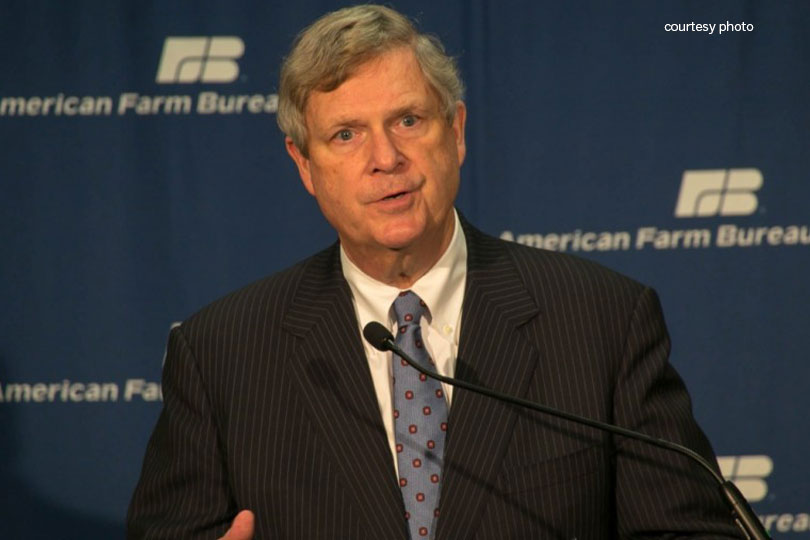By Jennifer Dorsett
Field Editor
This week, former Obama-era U.S. Secretary of Agriculture Tom Vilsack testified before a Senate committee on his way to expected confirmation once again as U.S. Secretary of Agriculture, this time under President Joe Biden’s administration.
During the hearing, he outlined issues he plans to address, if he is confirmed.
“The world and our nation are different today than when I served as agriculture secretary in a previous administration,” Vilsack said in his written testimony. “Today, the pandemic, racial justice and equity and climate change must be our priorities.”
Carbon sequestering banks, climate-smart farm practices, biofuels, food insecurity and ending what Vilsack said were discriminatory practices at U.S. Department of Agriculture (USDA) agencies came up during the hearing.
“I think we are in a ‘why not’ moment with reference to climate change,” he told the Senate committee in his opening statement. “I think there’s an opportunity for us to create new markets, incentives for soil health, for carbon sequestration, for methane capture and reuse, by building a rural economy based on bio manufacturing, protecting our workforce, turning waste material into new chemicals and materials and fabrics and fibers, creating more jobs in rural America, creating greater farm income stability and also reducing emissions.”
As secretary of agriculture, Vilsack said he would use the secretary’s Commodity Credit Corporation (CCC) spending authority to create an agricultural carbon bank and other programs to help farmers and ranchers adopt sustainable agricultural practices, with an eye on getting those programs included in upcoming farm bills.
“It is a great tool for us to create the kind of structure that will inform future farm bills about what will encourage carbon sequestration, what will encourage precision agriculture, what will encourage soil health and regenerative agricultural practices,” he said.
Concerns that a carbon sequestration bank would benefit third parties are unfounded, according to Vilsack. He said the bank would be designed in a way that the principal beneficiaries are farmers, so they would be encouraged to use it.
Biofuels would also get a boost in promotion under Vilsack, who said there are future applications not only in motor vehicles but in aviation and marine settings, as well.
Vilsack also addressed recent investigations into cattle market price discovery and record boxed beef prices seen at the height of the pandemic.
“The reality is we lack openness, fairness and competitiveness and resiliency in many of our agricultural markets,” he said. “I think we can strengthen the rules and laws designed to promote openness and fairness. I think we can support more marketing and processing opportunities and facilities throughout the country that will help to create jobs, greater resilience and more competitiveness in our food system.”
The Senate Agriculture, Nutrition and Forestry Committee voted to advance Vilsack’s confirmation, with a vote in the full Senate pending.
After a recent meeting, American Farm Bureau Federation President Zippy Duvall said Farm Bureau and Vilsack share similar priorities.
“I expressed to him that we had done a lot of work in the last two years to talk about voluntary and market-based climate policies and how we do that to help farmers adapt to continuing to be part of the solution to our climate problems,” Duvall said. “To accomplish anything, you’ve got to work together. Mr. Vilsack’s been there before. We already have a working relationship with him, and he’s going to pick up the reins at USDA and hit the ground running. And we look forward to helping him solve a lot of the big issues that are facing agriculture.”

